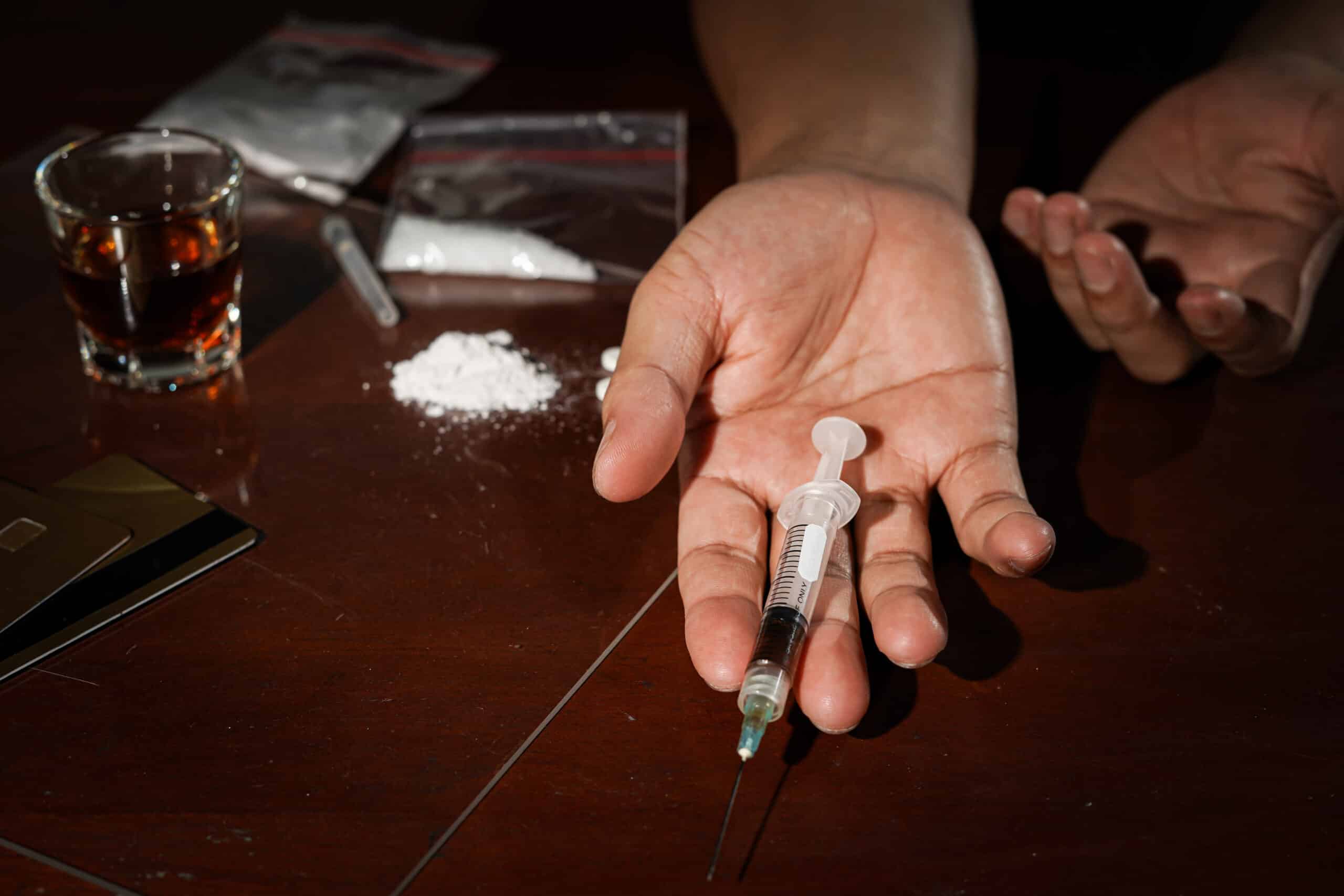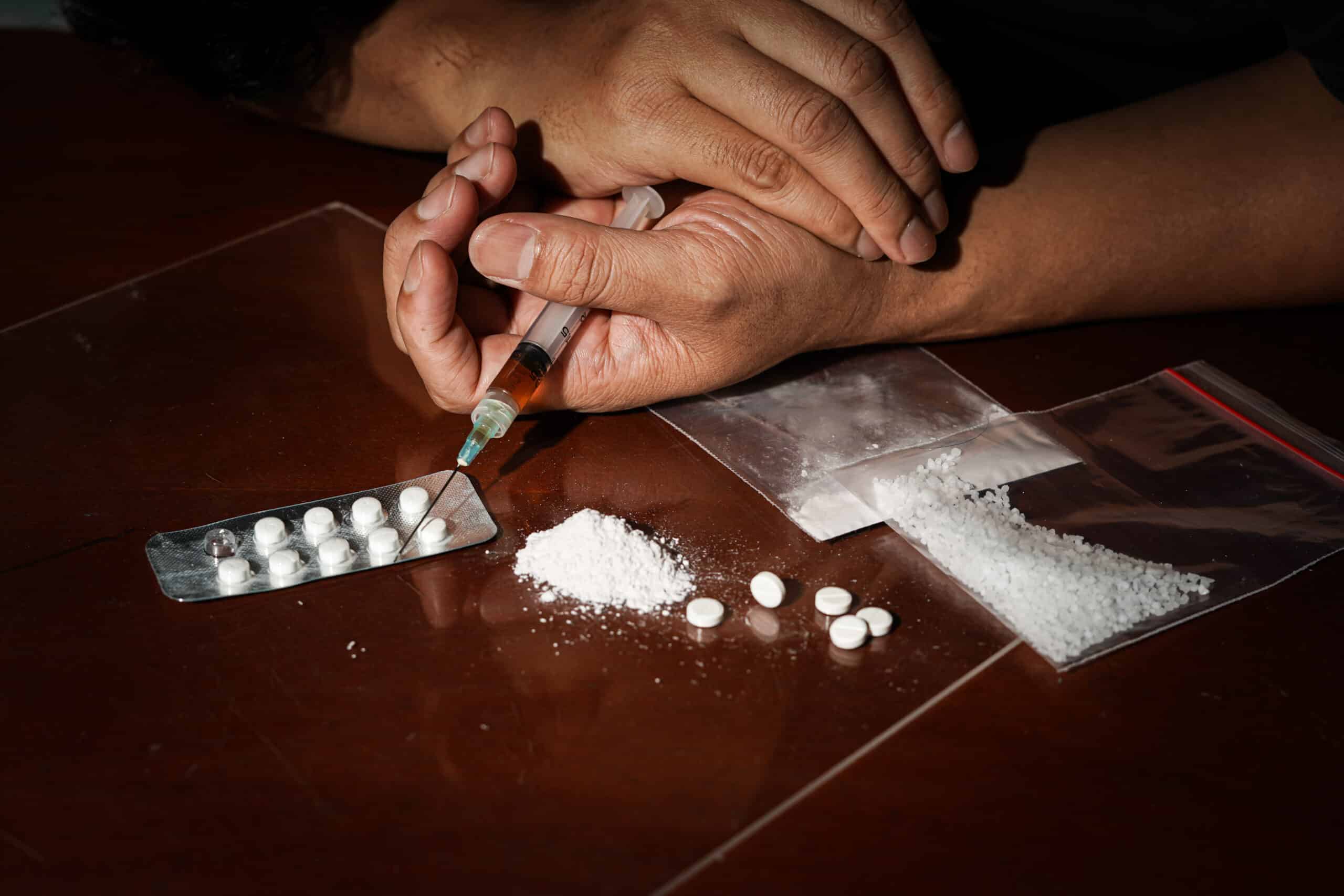Heroin Addiction Treatment in Worcester
Heroin addiction is a worldwide issue, with opioid addiction being named an epidemic in the United States. If you or a family member are battling heroin addiction, help and hope is available.
Recovery from heroin drug use is possible with the right treatment and ample support. At Blue Hills Recovery, we provide intensive treatment options, like detox, recovery housing, and outpatient programs, to help you manage withdrawal and quit use of heroin.
What is Heroin Addiction?
While less powerful than opioids like fentanyl, heroin is a highly addictive drug, and regular use can quickly develop into heroin dependence. A dependence on heroin means your body gets used to functioning with it and goes through withdrawal symptoms when you stop.
Addiction to heroin forms after repeated use causes an uncontrollable compulsion to keep taking the drug regardless of what it is doing to you or your behavioral health. Finances, work, and relationships suffer because of substance use.
Heroin addiction also causes detrimental short-term and long-term side effects that impact your physical and mental health.
Fortunately, heroin addiction treatment at Blue Hills can help you manage withdrawal symptoms, deal with underlying causes that led to heroin abuse, and learn skills to work toward lasting recovery.


Why Do People Form Heroin Addictions?
Heroin addiction doesn’t happen with the first use of the drug. It happens over a period of repeated use.
As you develop a dependency on drug use, heroin begins to rewire your brain to expect the drug to feel good even at times you normally wouldn’t take it.
Then, you begin to form a tolerance to the effects of heroin and require more of the drug to get the same high that you had previously gotten with less of the drug.
What Causes Heroin Addiction?
The brain naturally has receptors that help your body control pain, general well-being, and the release of hormones. These are called mu-opioid receptors (MORs). Heroin binds to those receptors, activating them to stimulate the release of dopamine.
Dopamine is a neural transmitter that is closely tied to the reward and reinforcement center of the brain. Heroin triggers the release of a lot of dopamine throughout the brain and body, reinforcing heroin use.
Heroin or opioid addiction forms with repeated reinforcement. Over time, you not only depend on the drug but need it to maintain your well-being.

Risk Factors for Heroin Addiction
One risk factor for heroin addiction is age. According to the National Institute on Drug Abuse (NIDA), the age group with the biggest risk for heroin addiction is 18 to 25-year-olds.
Other risk factors can make you vulnerable to heroin addiction. These risk factors include:
- The stress of unemployment or poverty
- Mental illness such as Post Traumatic Stress Disorder (PTSD) or severe depression
- Family history of substance abuse
- Prior recreational use of prescription opioids
- Physical or sexual abuse
Who is Affected by Heroin Addiction?
Anyone can be affected by heroin addiction, no matter what your education, background, or income level. However, certain populations are more vulnerable than others.
Looking at the rate of opioid or heroin overdose deaths is one way to see who is affected by addiction. According to the Centers for Disease Control and Prevention (CDC), opioid overdose deaths increased from 2015-2017 across all ethnicities.
However, middle-aged African Americans (in groups 45 to 54 years old and 55 to 64 years old) centrally located in large cities experienced dramatic increases in opioid overdose deaths.
Another group that experienced a sharp rise in opioid overdose deaths was non-Hispanic whites from 25 to 34 years old living in suburban areas of large cities.


Effects of Mixing Heroin with Alcohol and Other Drugs
One study found that there was a much higher instance of polydrug use (taking more than one drug at a time) among the younger population of people who use heroin.
Another study found that about 11% of people with a substance use disorder have a co-occurring alcohol use disorder.
Polydrug use with heroin is dangerous. When you use heroin with marijuana or alcohol, you are using multiple depressants that can depress the respiratory system, causing shallow breathing and other signs of overdose.
Sometimes people think taking stimulants such as methamphetamine or cocaine (in the form of a speedball) with heroin will offset the depressive effects of the drug. In reality, taking stimulants and depressants together masks each drug’s dangerous side effects.
Heroin Addiction Signs
If you or a loved one is facing heroin addiction, you can probably see signs of it. An addiction to heroin lays its claim on the physical, mental, and behavioral aspects of your life.
Behavioral signs of heroin addiction can include:
- Withdrawal or isolation from family
- Decline in work or school performance
- Sudden change in social group
- Tendency toward stealing
- Sudden change in attitude
Physical signs of heroin addiction include:
- Weight loss or gain that corresponds to an increase or decrease in appetite
- Needle marks on arms (which are generally concealed by a long-sleeve shirt)
- Small pupils, drowsiness, and shallow breathing due to intoxication
- Shaking, sweating, nausea, vomiting, and other symptoms that feel like a really bad flu
Heroin addiction also affects your mental health and signs of it include:
- Mood swings
- Feeling anxious
- Irritability
- Feeling unreasonably happy
What Happens When Heroin Addiction is Left Untreated?
Leaving heroin or opioid use disorder untreated is dangerous to all aspects of your health, as the signs of addiction mentioned above continue to spiral downward and get worse.
Here are some complications that can happen with long-term heroin abuse:
- Health problems, such as hygiene issues, heart risks, and more
- IV drug use can result in abscesses (heroin is often used via injection)
- Shared needles can transmit such diseases as hepatitis and HIV
- Hepatitis B and C
- Overdose, which can be treated via naloxone, but can be deadly if you don’t get medical intervention in time
Finally, the longer you put off treatment, the harder recovery will be. It is never too late to get treatment, but the more time your brain spends rewired to heroin addiction, the more severe withdrawal symptoms and cravings will be.

Heroin Addiction Treatment in Worcester, Massachusetts
You don’t have to continue in the cycle of heroin addiction. You can find sobriety today by getting heroin addiction treatment in Worcester, Massachusetts.
Upon intake, Blue Hills Recovery helps you develop a treatment plan that addresses your background, meets your individual needs, and reclaim your life.
Here are our top treatment options for heroin addiction.
Heroin Detox Programs
Heroin Addiction Rehab Programs
Day Treatment/Evening Treatment for Heroin Addiction
Conquer Heroin Addiction at Blue Hills Recovery
You don’t have to face heroin addiction alone. People who successfully walk the road to recovery do so with help from a qualified treatment center.
You need caring professionals and a compassionate support community to help you overcome addiction. Pursuing recovery with people who know what you’re experiencing and will keep you accountable can make all the difference.
Reach out to Blue Hills Recovery. Our team is ready to support you as you begin recovery and reclaim your life.
Heroin Addiction Treatment in Worcester FAQs
How do you overcome a heroin addiction?
Why is heroin so addictive?
How can you help someone with an addiction to heroin?
What happens if you quit heroin cold turkey?
Sources
Let’s talk about how we can help.
A Life of Healing Can be Yours.
You deserve to become your best self. With decades of combined experience in the field of addiction medicine, our staff knows what it takes to build a foundation for recovery.